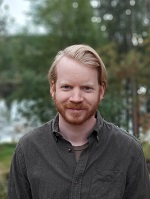2024
Upcoming
In this joint EVOGENE/CEES seminar, professor Adriana Sánchez from Universidad del Rosario in Colombia will give the talk: "Challenges and opportunities in the open ecosystems of Colombia"
Colombia is well-known as the second most biodiverse country in the world. While much research has focused on the tropical rainforests, other ecosystems like the tropical alpine (páramo) and savannas remain relatively understudied. Páramos are neotropical alpine grasslands, located at elevations above 3000 m in the Andean mountain range. They are recognized as one of the fastest-evolving hotspots, characterized by high levels of endemism and over 3500 species of flora. In contrast, the lowland savannas, constituting about 25% of Colombian territory and 30% of its wetlands, have received comparatively less attention in biodiversity studies, despite an estimated 35% of species being endemic to the region. Both grasslands have very different abiotic conditions although fire used to be a common disturbance. This talk aims to introduce both ecosystems, ongoing projects, and potential avenues for future collaborative research.
Previous
The REPEAT group (PIs: Kjetill S. Jakobsen and Melinka A. Butenko) are interested in the functional and evolutionary importance of short tandem repeats in genomes. Short tandem repeats are common, but hypermutable regions. This leads to a high number of short tandem repeat variants in a population. We have combined population genomics and experimental approaches to study the impact of short tandem repeat alleles in Arabidopsis, with emphasis on their role in gene regulation and how they impact protein function. Based on our findings from Arabidopsis, we conducted a study of repeats across 1,270 species, including animal, fungal, plant, and other eukaryotic genomes. In this seminar I will present the results from this (recently submitted) study.
NB: NEW DATE MAY 16.
Evogene proudly presents the first rounds of master flash talks for 2024! Four master students are currently scheduled to give presentations of their work.
Angiosperm species display a huge variation in the form of their inflorescences, flowers and fruits. This diversity has evolved through modifications in the gene regulatory networks (GRNs), which underlie the development of these structures. To understand how gene evolution brings about the divergence of traits, we focus on the MADS-domain transcription factors, which play important roles in the GRNs that regulate flowering and fruit development. We study how gene regulatory networks can change between species, investigating both the specificity of protein-protein and of DNA-protein interactions, as well as divergence in expression profiles. The main topic of our studies is the MADS-domain transcription factor FRUITFULL (FUL), which has a conserved function in the regulation of flowering time, fruit development and woodiness throughout the angiosperms.
Genetic screens for antibiotic resistance determinants in Staphylococcus aureus using CRISPR interference libraries.
Morten Kjos is Associate Professor at NMBU
The role of transposon activity in shaping cis-regulatory element evolution after whole genome duplication
Simen Rød Sandve is a Professor in genomics at the Faculty of Biosciences at the Norwegian University of Life Sciences.
He will talk about chromatin accessibility, cis-regulatory elements, transposable elements, and whole genome duplication
The evolution of commensalism in Passer sparrows
Human activity has altered the evolutionary trajectories and ecological circumstances of nearly every species on Earth. What can this tell us about the processes of adaptation and speciation? Can we take advantage of the human impacts on species as means to study evolution and its intersection with ecology? This is the driving aim of my research group, where we use Passer sparrows as a model system. We are focusing on a number of topics including understanding the evolutionary causes and consequences of human-commensalism, repeated adaptation to environmental changes in introduced populations and convergent adaptation to human environments across all bird species. We do this using a multidisciplinary approach including genomics, phylogenetics and ecological analyses.
Intracellular signaling in bacteria and antimicrobial resistance in a One Health Perspective
Genome sequencing and surveillance of viruses at FHI.
Jon Bråte from FHI (Folkehelseinstituttet; Norwegian Institute of Public Health) will talk about genome sequencing and surveillance of viral pathogens.
The first Evogene seminar of 2024 will be an information meeting where Paul and Kathrine Schou will inform about, among other topics, (tentative) plans for the new Life Science building and the IBV economic situation.








